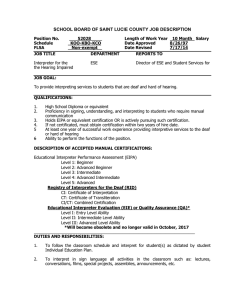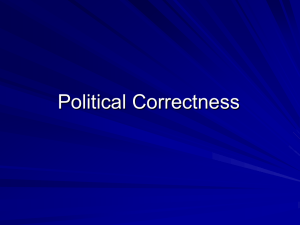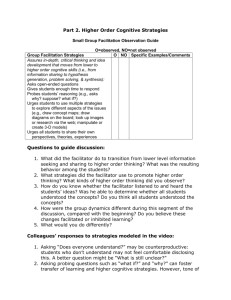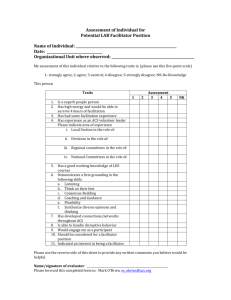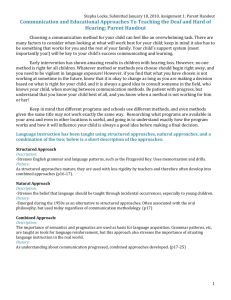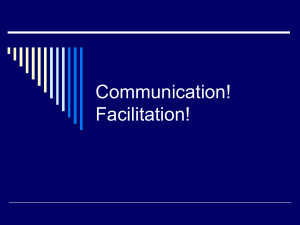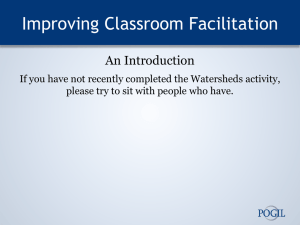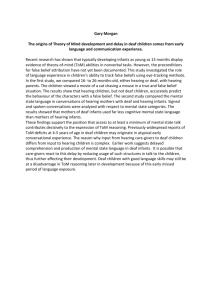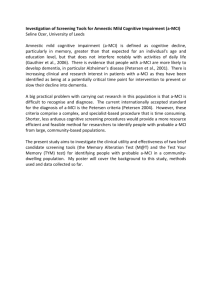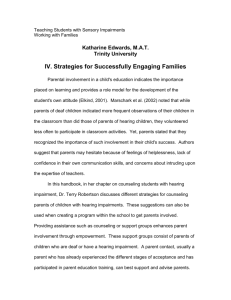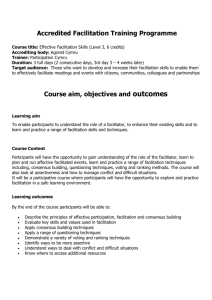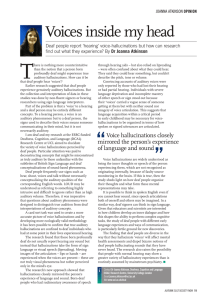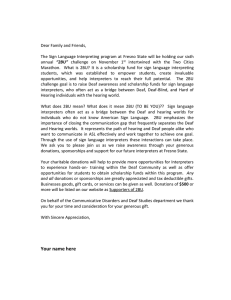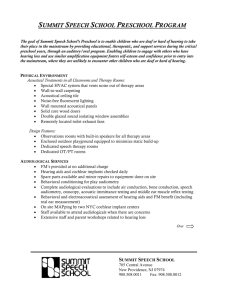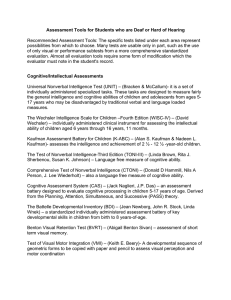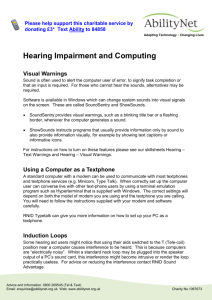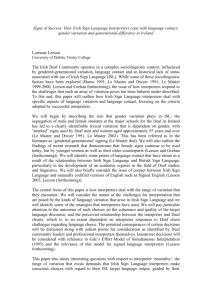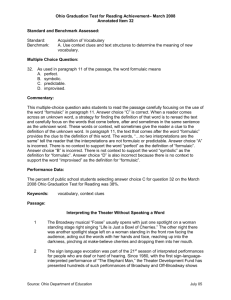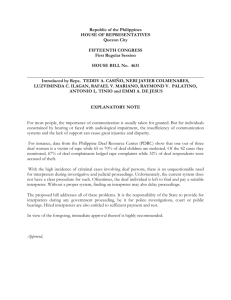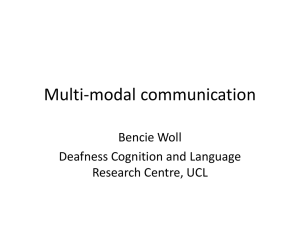Language Facilitator job description
advertisement
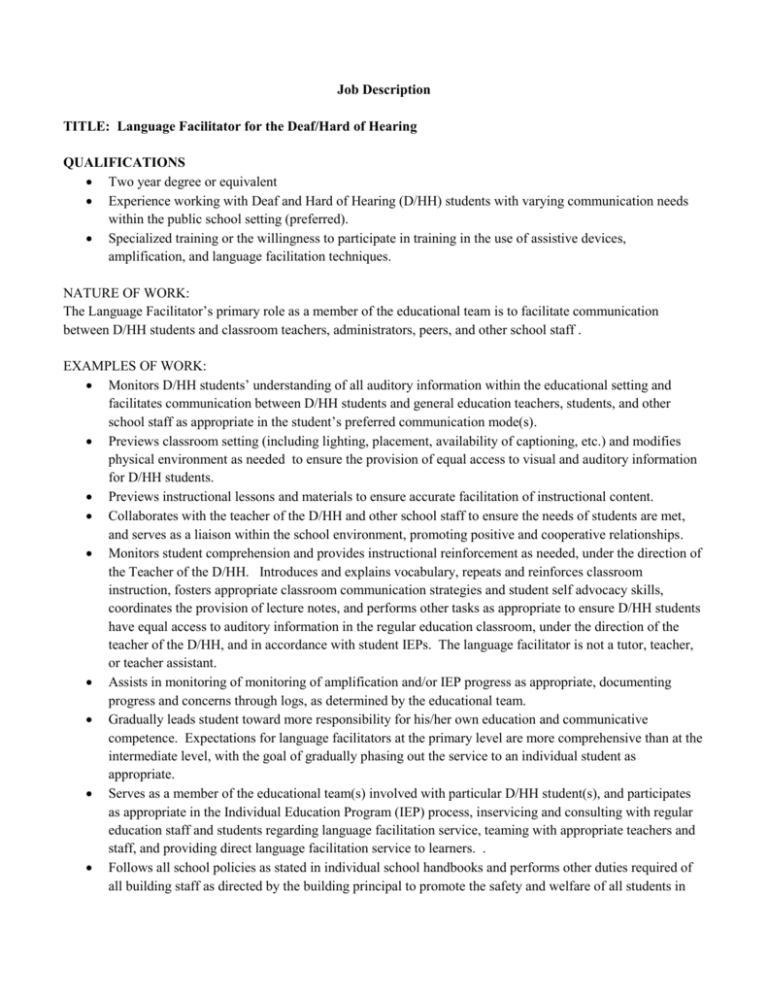
Job Description TITLE: Language Facilitator for the Deaf/Hard of Hearing QUALIFICATIONS Two year degree or equivalent Experience working with Deaf and Hard of Hearing (D/HH) students with varying communication needs within the public school setting (preferred). Specialized training or the willingness to participate in training in the use of assistive devices, amplification, and language facilitation techniques. NATURE OF WORK: The Language Facilitator’s primary role as a member of the educational team is to facilitate communication between D/HH students and classroom teachers, administrators, peers, and other school staff . EXAMPLES OF WORK: Monitors D/HH students’ understanding of all auditory information within the educational setting and facilitates communication between D/HH students and general education teachers, students, and other school staff as appropriate in the student’s preferred communication mode(s). Previews classroom setting (including lighting, placement, availability of captioning, etc.) and modifies physical environment as needed to ensure the provision of equal access to visual and auditory information for D/HH students. Previews instructional lessons and materials to ensure accurate facilitation of instructional content. Collaborates with the teacher of the D/HH and other school staff to ensure the needs of students are met, and serves as a liaison within the school environment, promoting positive and cooperative relationships. Monitors student comprehension and provides instructional reinforcement as needed, under the direction of the Teacher of the D/HH. Introduces and explains vocabulary, repeats and reinforces classroom instruction, fosters appropriate classroom communication strategies and student self advocacy skills, coordinates the provision of lecture notes, and performs other tasks as appropriate to ensure D/HH students have equal access to auditory information in the regular education classroom, under the direction of the teacher of the D/HH, and in accordance with student IEPs. The language facilitator is not a tutor, teacher, or teacher assistant. Assists in monitoring of monitoring of amplification and/or IEP progress as appropriate, documenting progress and concerns through logs, as determined by the educational team. Gradually leads student toward more responsibility for his/her own education and communicative competence. Expectations for language facilitators at the primary level are more comprehensive than at the intermediate level, with the goal of gradually phasing out the service to an individual student as appropriate. Serves as a member of the educational team(s) involved with particular D/HH student(s), and participates as appropriate in the Individual Education Program (IEP) process, inservicing and consulting with regular education staff and students regarding language facilitation service, teaming with appropriate teachers and staff, and providing direct language facilitation service to learners. . Follows all school policies as stated in individual school handbooks and performs other duties required of all building staff as directed by the building principal to promote the safety and welfare of all students in the school, as long as duties do not interfere with the primary role of facilitating communication for D/HH students. Demonstrates professionalism, applying appropriate codes of conduct to the educational setting. Assists teachers and administration with duties that contribute to the enhancement of the classroom environment while not interfering with the primary duty of language facilitation. KNOWLEDGE, SKILLS, AND ABILITIES: Working knowledge of typical language development. Understanding of the potential impact of hearing loss on communication, development, and learning, particularly in the areas of language and literacy. Knowledge of current federal and state legal mandates related to students with hearing loss, particularly procedural policies and confidentiality requirements. Skills in the communication mode(s) used by the deaf or hard of hearing student(s) with whom s/he would be working and appropriate strategies to facilitate understanding of auditory communication. Ability to communicate effectively in oral and written forms, with competence in English grammar and mechanics (spelling, capitalization, and punctuation) and strong interpersonal skills. Desire to continue development of knowledge, skills, and abilities in the field, and the completion of appropriate staff development training to attain further knowledge, skills, and abilities, including the completion of Individual Growth Plans as appropriate. General background in liberal arts, science, and math to allow understanding of content in K-12 curriculum areas. Ability to work with students of varying maturational, communicative, cognitive, and functional educational levels. DPS, Developed June 2009. Sources: Nebraska Guidelines for Educational Interpreters (2002), Best Practices in Educational Interpreting (Brenda Chafin-Seal, 1998), Registry of Interpreters for the Deaf, National Association of the Deaf, Ohio Guidelines for Educational Interpreters (2000), Kansas State Board of Education Guidelines for Educational Interpreters (1995), and Guilford County Schools (NC) Language Facilitator Job Description (2007).
